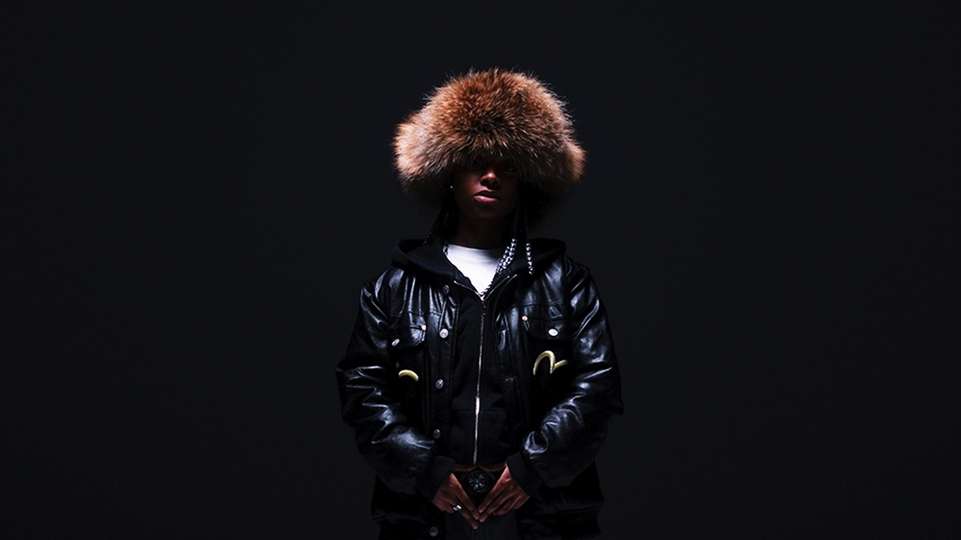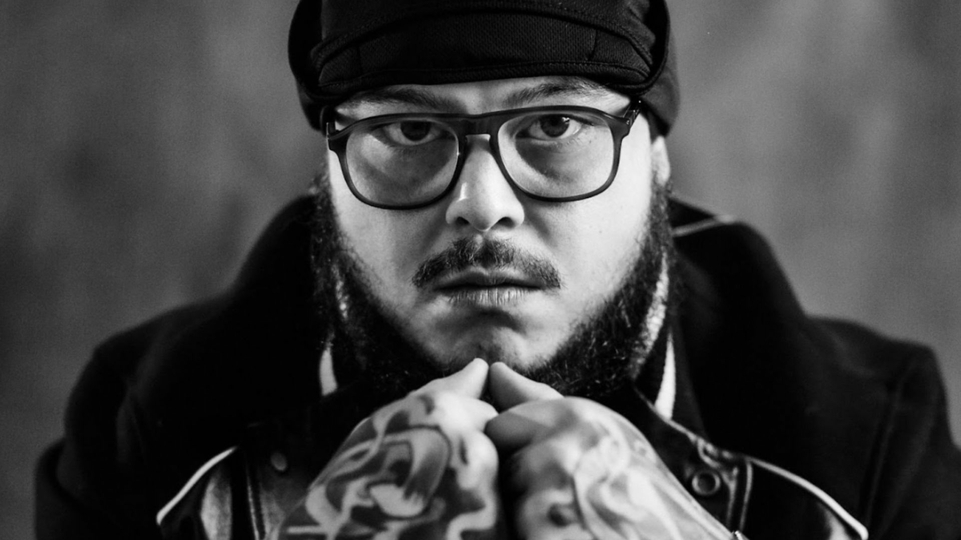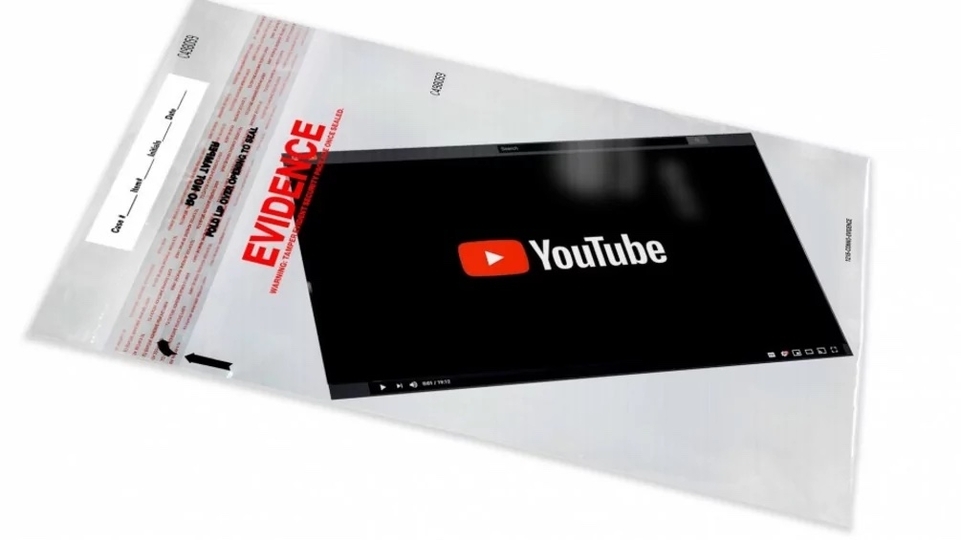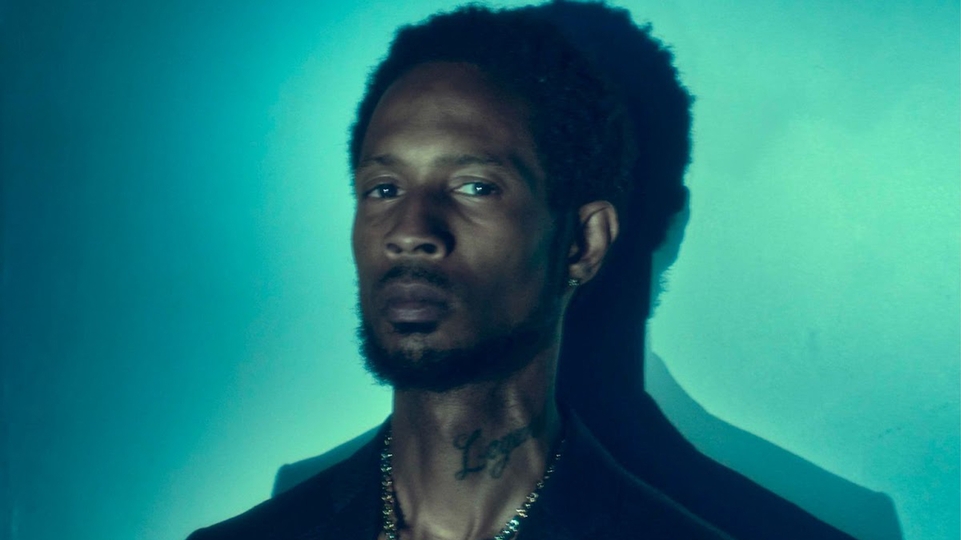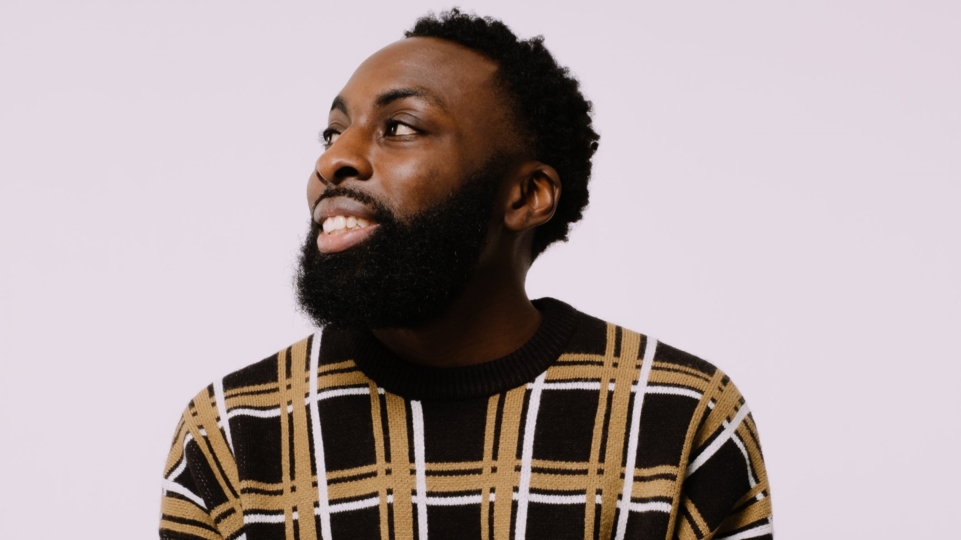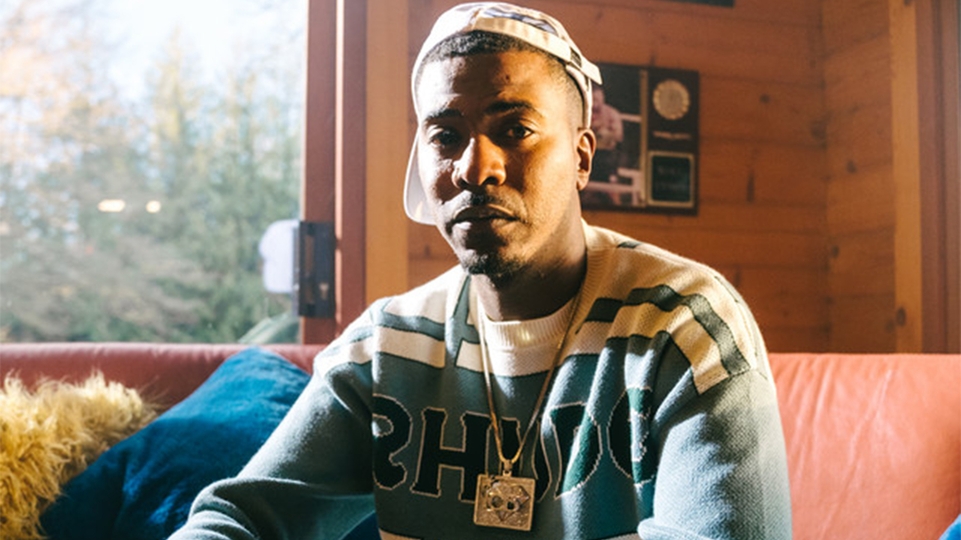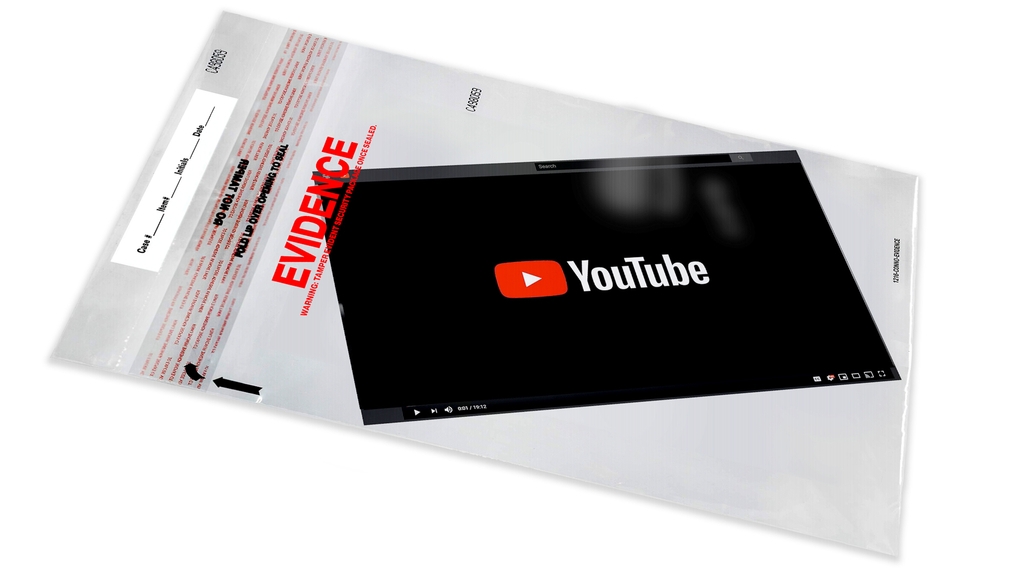
Prosecuting Rap: how a UK legal project is fighting the use of rap lyrics in court
Recent years have seen an increase in the number of UK criminal trials using rap lyrics and music videos as evidence, a trend that disproportionately affects young Black men and worries many in legal and creative fields. But a Manchester-based research project, Prosecuting Rap, is challenging the use of “rap evidence” in court. Kamila Rymajdo explores the project and the rap evidence phenomenon
Rap music has long been subjected to heavy policing and censorship, and not just in the United States. In the UK, Form 696 was regarded as the London Metropolitan Police’s way of shutting down grime gigs in the ’00s, and more recently, drill artists have been slapped with injunctions, banning them from performing and making drill music. But the phenomenon is becoming more sinister. Increasingly, rap videos and lyrics are being used as evidence in criminal trials: presented by prosecutors as autobiographical confessions to crimes, threats of violence or proof of gang affiliation.
So far, researchers at University of Manchester have identified over 60 cases where “rap evidence” has been used in this way, dating from the mid ’00s till 2020. On what basis is a musical genre being used as proof of criminality? And what’s being done to challenge it?
Eithne Quinn is an author, Senior Lecturer at University of Manchester and the head of a research project called Prosecuting Rap: Criminal Justice and UK Black Youth Expressive Culture, which highlights the use of rap evidence in UK criminal trials. Quinn sees the rise in rap evidence use coinciding with the popularity of drill music, which has been accused of exacerbating an epidemic of knife crime in the UK.
“There are sometimes loose links between drill and youth violence; and sometimes incidents of violence can authenticate the music in concerning ways, which has been greatly amplified by the media,” she says. But she stresses, “what absolutely must not happen is that the heightened moral panic about drill and violence, with all its power and baggage, is pulled into the courtroom — and that’s exactly what’s happening at the moment.”
Prosecuting Rap is networked with other academics and legal professionals. One of them is Abenaa Owusu-Bempah, an Assistant Professor of Law at the London School of Economics. She explains that violence and weapons “are common subject matter in rap music, so it becomes easy to make that link,” but argues that “when it comes to assessing the relevance of the evidence to the case, the courts often do so without considering that rap is an art form or the conventions of the music.”
Quinn puts it this way: “Adopting a violent or criminal persona, as drill rappers do, can easily be misconstrued by prosecutors. Rap is a complex and coded but very provocative kind of language, which has been proven to be extremely popular with youth audiences.”
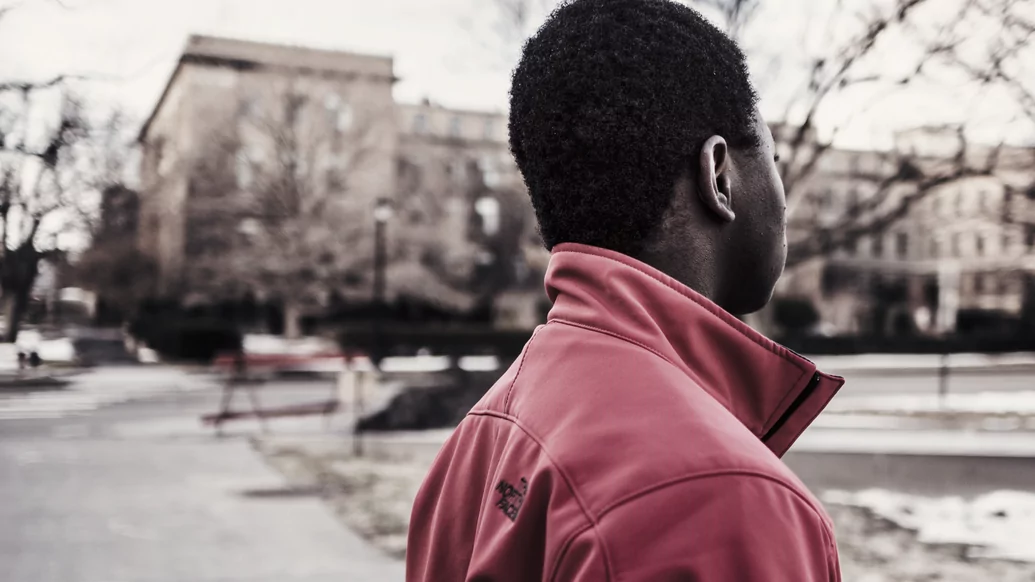

She argues that because jurors are often not familiar with rap’s genre codes, such as braggadocio and fictional first person narratives, it’s easy for them to mistakenly conflate the menacing musical persona in the song with the young person sitting in the dock. Owusu-Bempah agrees. “The risk is that juries will attach far more weight to the evidence than it warrants,” she says, “and the great danger which could then result is wrongful convictions.”
Studies in the US suggest that the use of rap evidence is highly prejudicial because people view rap more negatively than other music genres. In 1999 studies, two studies were conducted, one by Carrie B. Fried and another by Stuart Fischoff. In the former study, two groups of participants read a passage of violent lyrics. One group was told it was a rap song, the other a country song. When asked to comment on how offensive and dangerous they thought the lyrics were, the group given the supposed rap song reacted significantly more negatively. In the latter study, those presented with a defendant as a rapper were more likely to think they were capable of committing murder, than one who wasn’t a rapper.
This prejudice hasn’t gone away, either. In a 2018 study by Adam Dunbar and Charis Kubrin, authors of violent rap lyrics were still perceived more negatively than authors of violent country and heavy metal lyrics. These studies also show that violent rap lyrics evoke stereotypes of Black criminality. In their 2019 book Rap on Trial, authors Erik Nielson and Andrea Dennis write that “the sense that rap music is threatening or dangerous is a reflection of the stereotypes that many people harbor about Black people in general.”
This comes as little surprise to Owusu-Bempah. She’s collated over 30 UK appeal judgements reported between 2005-2020 from publicly accessible legal databases, and the majority of the defendants in the rap evidence trials she’s identified are Black men and boys — particularly teenagers — which falls in line with the overwhelming over-representation of Black and minority ethnic boys within the prison population. “We can see disproportionate and discriminatory treatment of Black people throughout the criminal justice process, and this use of rap feeds into that,” she says.
One way some switched-on defence lawyers are fighting this practice is enlisting “rap experts”, who comment on the relevance of rap evidence to the crime at issue, write reports and sometimes take the stand. They are usually drafted from academia, but can also be music industry professionals. Quinn has served as a rap expert for the defence in over a dozen cases, and has seen first-hand how rap evidence is presented in court.
One element is how prosecution lawyers often rely on police officers to “decode” rap evidence ahead of trials and on the stand. Quinn finds this problematic because the prosecution and the police have far greater resources than defence counsel, who often don’t know how to access the limited number of rap experts available in order to scrutinize this decoding. This creates “an inequality of arms” (‘equality of arms’ is a jurisprudential principle issued by the European Court of Human Rights, as part of the right to a fair trial) between defence and prosecution, and puts a lot of power into the hands of police officers, whose decoding often goes unchallenged.
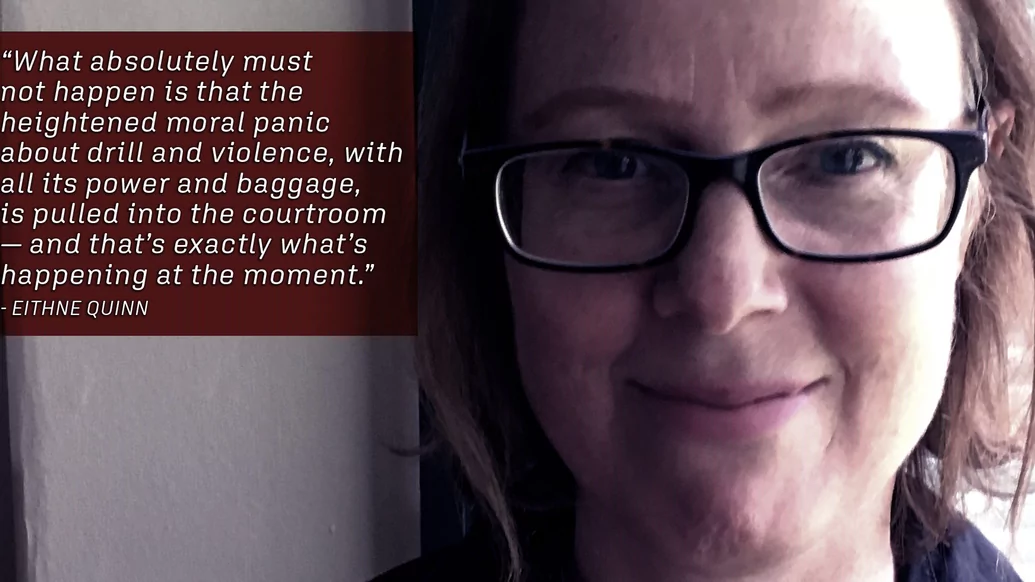

Latoya Reisner is a research associate with Prosecuting Rap. She’s compiling a list of cases using rap evidence by trawling media reports, legal databases and YouTube. She makes this analogy: “Similar to how the media cherry pick information to suit how they’re going to portray somebody, police and prosecutors can cherry pick lyrics to suit their agenda.”
She references a case where the police report mistakenly identified music videos as drill, when they were from a different sub-genre of rap: “If you’re showing that you don’t have knowledge of the genre in general and where it originates from, are you in a strong position to write an expert report?” As Owusu-Bempah points out, “being an expert on gangs does not make you an expert on rap.”
Quinn recounts a murder case that she was instructed in, involving a drive by shooting on a moped, with a number of defendants. Plucked from over 100 pages of handwritten verses, police presented two references to drive-bys that the prosecution wanted to rely on: “Grab the strap, load the mac now we riding to it, Driveby get stupid, live nines we shoot it.” However, they omitted the opening line to this verse — “This is rider music, get you hyper music” — and its closing line, “this is a club banger.”
As Quinn explains, “in the line ‘now we riding to it’, ‘it’ appears to be the rider music, so the rapper is depicting a scene in which he and others listen to his hardcore music as they start driving. They are presumably in a car or other enclosed vehicle, not a moped.
“But the main point is that the lyric itself insists, at the start and end, that it is club music. It’s announcing to the listener that it’s entertainment, that it shouldn’t be taken literally.” As such, “the example is representative of how prosecution lawyers are asking for a literal interpretation of rap lyrics, as if it related to the incident,” rather than seeing them as generic conventions of a fictional, if violent, poetic form.
Shockingly, Owusu-Bempah’s research shows that “in the vast majority of cases, the lyrics [presented as evidence] are not about the crime charged.” Instead, they’re adduced as “evidence of bad character” to help prove some issue in the case, such as a propensity towards violence or gang association. In legal terms, “bad character evidence is evidence of misconduct or of a disposition towards misconduct.” Misconduct “is defined as commission of an offense or other reprehensible behaviour.”
She explains that while writing or performing rap is not usually considered an offence, unless it involves, say, a specific threat to kill or unlawful possession of a firearm in a video. Instead, it’s “being treated as bad character evidence on the basis that the behaviour is reprehensible.” In essence: the creation or performance of lyrics that reference violence or other criminal activity can be viewed by the courts as reprehensible, and as evidence of propensity to violence. This is despite the fact that other art forms with violent content — such as films, novels or video games — are rarely, if ever, viewed by the courts in this way.
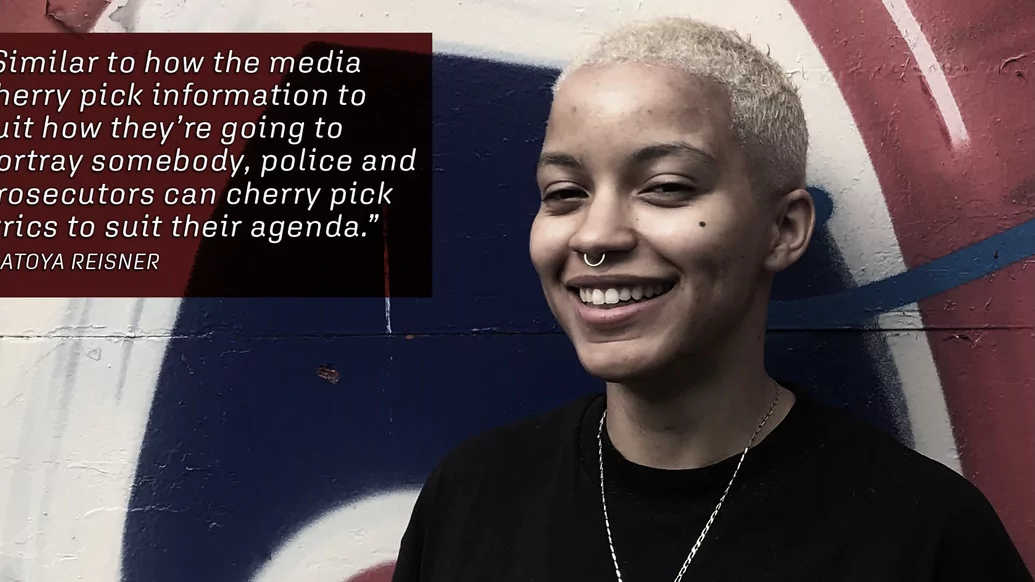

One of the most recent UK trials in which prosecutors sought to use lyrics as evidence of bad character is that of London drill artist Unknown T. Quinn was instructed as the defence’s rap expert in early 2020. Although there wasn’t much evidence against him, Unknown T was charged with murder following a brawl and a fatal stabbing at a New Year’s Eve house party he attended on the cusp of 2018.
Following the legal argument about the admissibility of the lyrics, in an unusual move, the trial judge dismissed the prosecution’s attempt, saying that the use of rap evidence “is in any event highly prejudicial and in effect, the Crown are seeking to bolster an otherwise weak or flawed case by the introduction of such evidence.” Unknown T was acquitted of all charges, but others haven’t been so lucky.
A core concern for Prosecuting Rap is that the rap evidence submitted doesn’t even need to be recent. “There is no standard, there is no limit,” says Owusu-Bempah. In one case she came across, the video presented as evidence of bad character was two years old. “It’s concerning not just because of the two years, but also because of the age of the defendant,” she says, who was 14-years-old in the video. “I do not see how that’s representative of character or intention or state of mind, or anything, two years later, at 16,” she says.
The defendant also only needs to have a “shockingly low level” of involvement in the video itself. This evidence is often used to attempt to prove that the defendant was in a gang and/or part of a “joint enterprise”, a legal doctrine which permits two or more defendants to be convicted of the same criminal offence.
Owusu-Bempah has identified only one successful appeal against this use: the conviction was quashed because the fact that the defendant was in the background of two rap music videos was deemed not sufficient evidence to establish a gang association in the way the prosecution had argued. Owusu-Bempah suggests that, in this context, simply throwing a gang sign up or standing next to someone who’s been identified as a gang member in a video “can be enough to make association with that gang.” Gang association can then be used to link the defendant to the joint criminal venture.
The practice goes some way to account for the Institute of Criminology at Cambridge University finding that “Black/Black British people are disproportionately represented in the statistics of those in prison for joint enterprise offences — at 37.2%, despite being only 3.3% of the British population.”
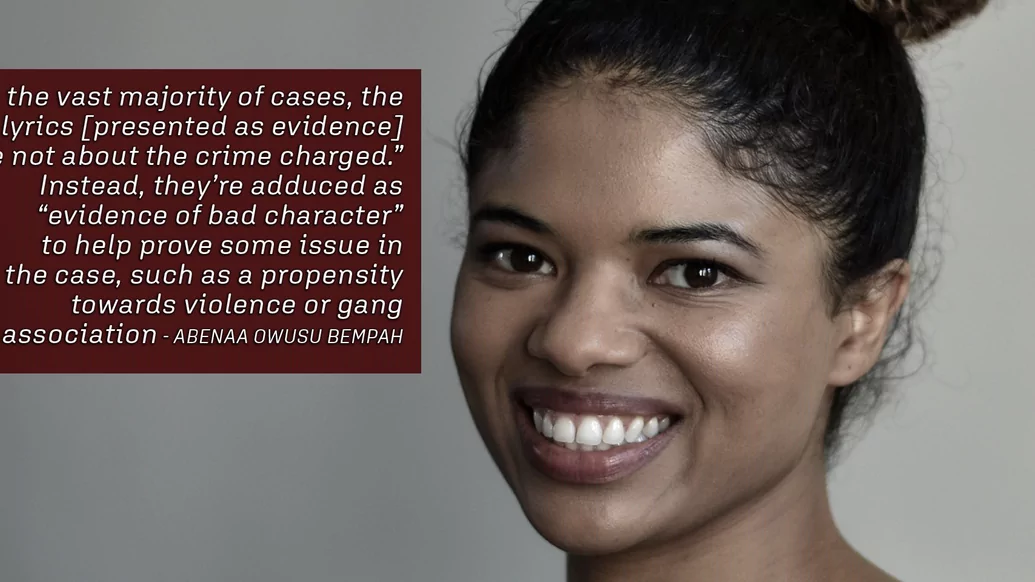

Manchester Metropolitan University’s Patrick Williams and Becky Clarke also argue that this way of linking individuals to gangs is racist. In a 2016 report, Williams and Clarke found that prosecutors in joint enterprise cases especially rely on rap evidence when a defendant was not at the scene of the crime. This means that appearing in a video which links you to a gang could see you convicted of a serious crime you potentially weren’t even present for.
Worryingly, it’s a practise that’s continued. In a 2020 academic paper based on prisoner interviews, Williams and Clarke reported on the way that prosecutors continue to build joint enterprise cases using rap evidence: “Playing certain music videos or reading out song lyrics in court, particularly from ‘hip hop’, ‘grime’ and ‘rap’ genres, formed a resource for building criminalising associations against negatively racialised groups and individuals.”
But there is increasing pushback to this. This summer, criminal defence lawyers from the Garden Court Chambers, a famed UK barristers chambers focusing on human rights and fighting injustice, hosted a webinar series that brought attention to the use of rap evidence in joint enterprise and gang trials.
Legal professionals, academics and activists discussed how rap evidence can be contested, such as challenging the prejudicial methodology underlying police “expert” evidence, calling on defence experts such as criminologists and anthropologists to dispute the gang narrative, and objecting to the admission of bad character evidence.
The series broke Garden Court Chambers’ webinar viewer records and sparked debate among music industry insiders. These public conversations are something that Prosecuting Rap welcomes. “There’s been longstanding and concerted push back against the stark unfairness of joint enterprise convictions, and the way in which rap has been used to lock down joint enterprise cases against young Black men is very under acknowledged,” says Quinn.
She believes that “looking at rap in detail, looking at some of the actual, specific evidence, really gives us concrete examples of how those racist processes happen; how rap lyrics and videos in the courtroom can do powerful racist signalling about rapper defendants and their co-defendants.”
As popular drill artist Digga D has found out, having rap lyrics used in your trial can have longer-lasting effects than even a prison sentence. Digga D was convicted of conspiracy to commit violent disorder alongside members of his group, 1011, following a trial where jurors were played their videos with lyrics referencing violence. Afterwards, Digga D received a Criminal Behaviour Order — an order, issued by a judge, which can prohibit the offender from doing anything described in the order. This prevented him from talking about certain things in his lyrics and portraying specific places in his videos.


In one of the Garden Court Chambers’ episodes, Digga D’s lawyer Cecilia Goodwin discusses the impact of CBOs on her clients. On top of the usual conditions, such as non-association and geographical restriction, “there are conditions that I call the ‘nasty conditions’, because they get to the crux of the whole drill industry and the ability of an artist to be creative, to put music out and also make money,” she says.
Goodwin details how she checks the lyrics of her client’s songs, line by line, before serving the lyrics to police for vetting. Making a video also has to be conducted in accordance with restrictions. “For an artist to be able to make strides to change their life they have so many hurdles to go through, and even just putting a song out can land you back in prison,” she says.
Looking to the future, Owusu-Bempah is working on recommendations to better regulate the use of rap evidence in serious crime cases. “At a minimum, admissibility decisions need to be much better informed, judges need to take much greater account of the context of the evidence, and scrutinise the evidence much more thoroughly than they are currently doing,” she says. Given how arguably prejudicial and racist the practice is, Quinn is hopeful that, with greater public awareness, eventually, rap evidence will stop being used in criminal trials in the UK.
